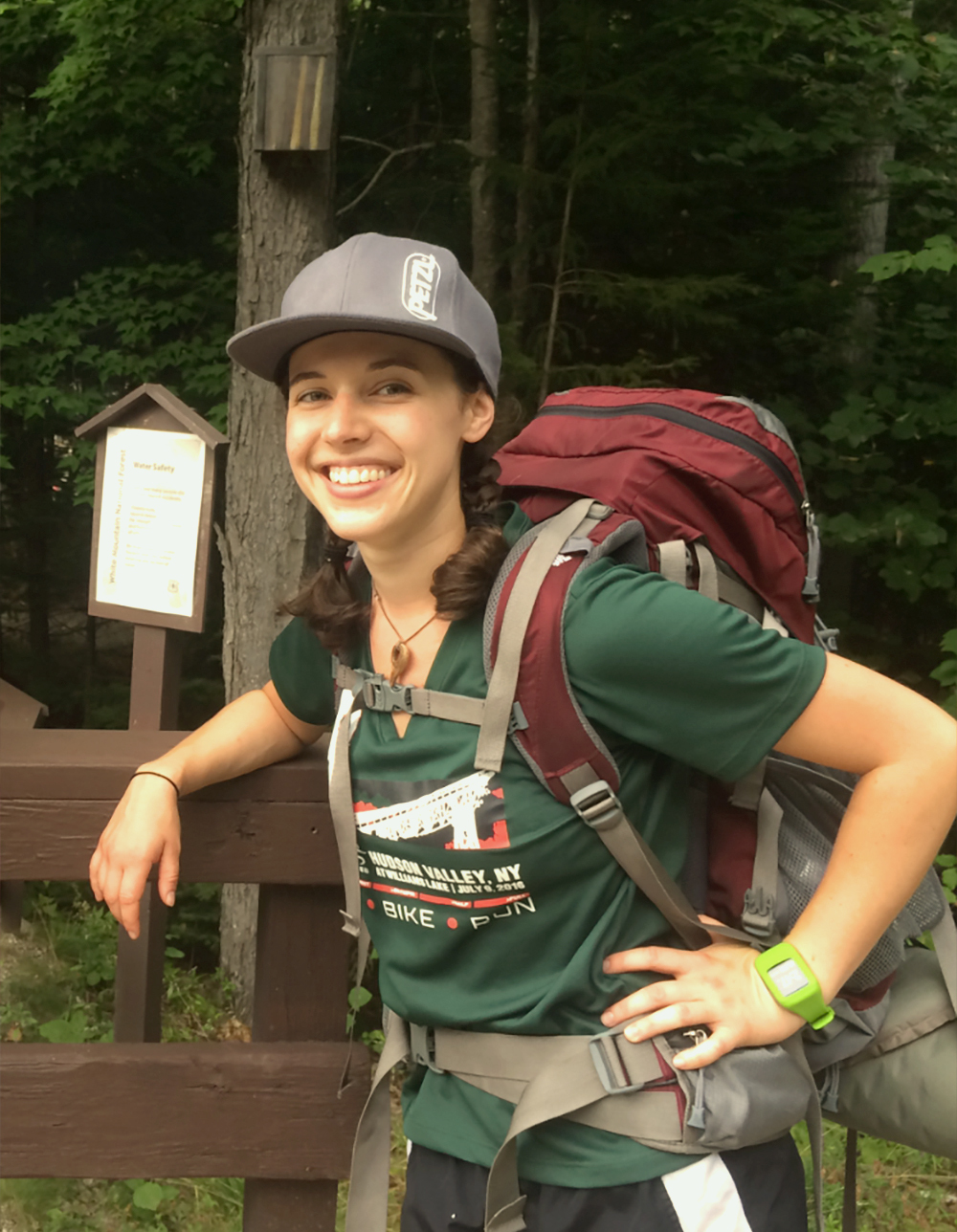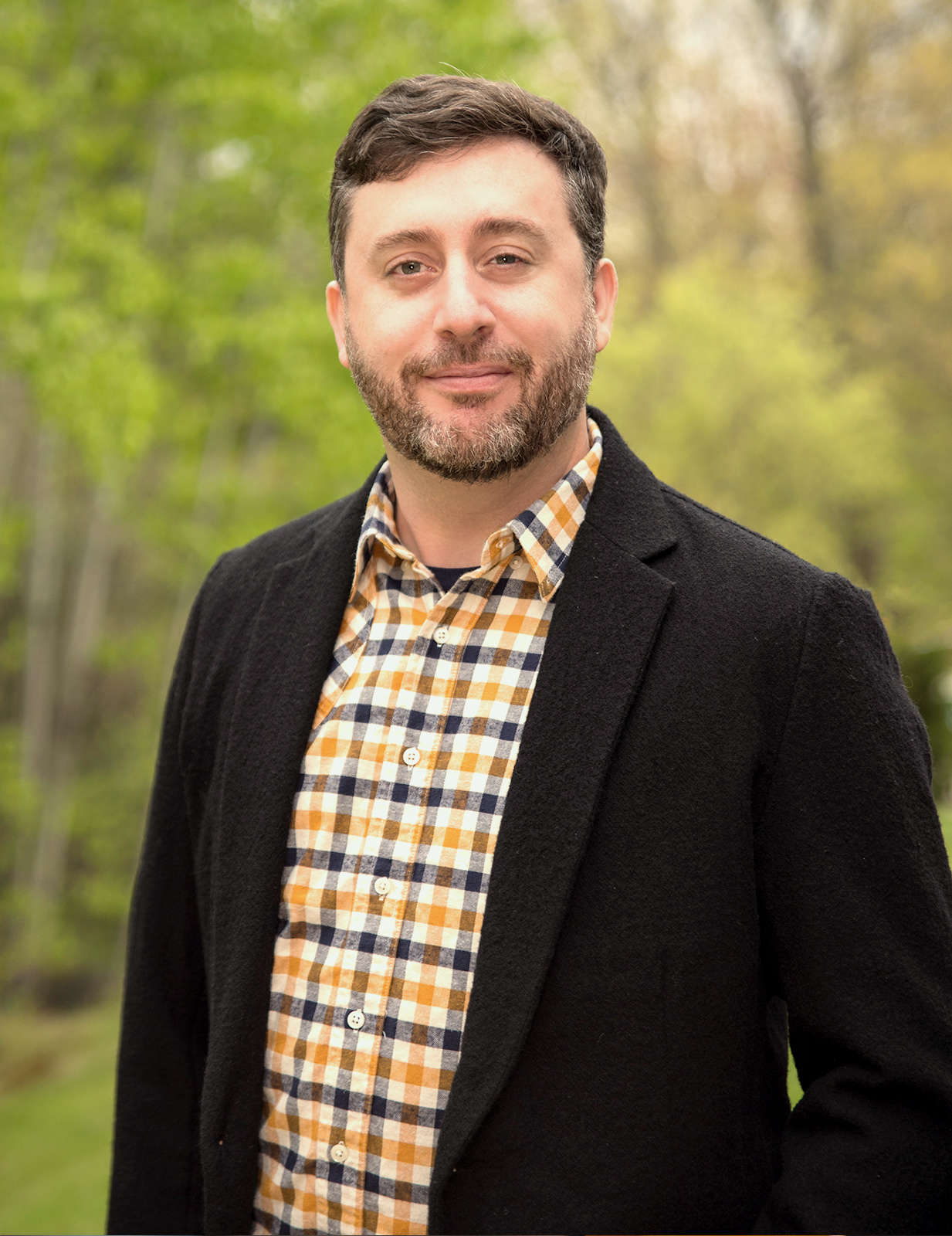Studying Sustainability at a Distance
Why did you decide to earn a degree at Harvard Extension School?
I was drawn to the Extension School’s sustainability graduate degree program because I could do it from wherever I was living at the time and while working full time. I took the majority of the courses online while living and working in the Upper Valley [New Hampshire and Vermont]. At one point, I seriously considered moving to Boston. But one look at the average rent and cost of living down there stifled that ambition!
Studying online is also the learning format that I grew up with. I was a homeschooled student. In some ways, it makes me feel like I’m back home on the farm, logging into Blackboard to talk to my teachers and classmates in seventh grade. Of course, the material is much more challenging and interesting!
How has this experience helped you in your career?
The program helped me determine where in this vast field of topics my passion truly lies. I started out taking a wide variety of classes—from agriculture to energy to green buildings—to help narrow my interests. Thanks to the spectrum of classes available, I was able to find that I gravitated toward classes dealing with energy reduction and use procedures.
The class I’m taking in my final term before Commencement, Energy and Carbon in the New Economy, actually teaches us how to do greenhouse gas assessments. Who would have thought I’d love crunching numbers in a spreadsheet so much? My studies have inspired me to pursue a career in consulting, where I can apply what I have learned to real-world scenarios to reduce energy usage.
I may go back to school further down the road, perhaps for a PhD or law degree. Ultimately, I would love to teach.
Tell us about your on-campus experience.
It made me feel like part of the Harvard family. It’s truly empowering to be around so many passionate people from all over the world.
My classmates came from as far away as California and even Ireland. We came with a diversity of backgrounds and educations. But we were all there because we share a passion for the environment, the desire to be change agents, and a drive to help our respective organizations make sound environmental decisions. It hit me at the end of our first day together how lucky the world is to have people like that working for its protection. It made me feel a bit better about the future of the environment!
I also enjoyed the classes that had both online and on-campus components. I loved the feeling of being on campus. While Harvard Extension has the convenience of being mostly online and part time, I do miss the experience of going to campus every day and interacting with my classmates. I also thoroughly enjoyed visiting LA Burdick’s every morning for their delicious hot chocolate!
Read Molly’s Extended Interview Here
Tell us a little about your path to Harvard Extension School.
I grew up in north central Pennsylvania on a small farm. My parents are both scientists and my upbringing was very science-focused, with particular emphasis on biodiversity and preserving gene pools, especially in this time of global climate change.
My older sister and I were both homeschooled, which gave our parents a chance to provide emphasis on topics the local schools did not adequately cover, like science and the environment. In middle school, I joined the PA Cyber Charter School which allowed me to continue to do my work at home, but with the benefit of a lot of self-teaching and self-pacing — skills I value to this day.
When I graduated [college] in 2012, I had absolutely no idea what I wanted to do. … I finally realized that I wanted to go back to my environmental sustainability roots, but I lacked the credentials to get there. That’s when I stumbled upon Harvard Extension School’s sustainability program.
During my freshman year at Cornell, I declared a natural resources major with focuses on applied ecology and sustainability. Later I added a plant science major and a viticulture and enology minor [the science of grapes and winemaking, respectively]. I was very interested in sustainable and organic vineyard management and even managed Cornell’s organic vineyard for a summer.
However, when I graduated in 2012, I had absolutely no idea what I wanted to do. I held a variety of jobs over the next two years working as everything from organic farmer, swimming coach, and vineyard hand, to editor in chief of an online news source and administrative assistant.
While I tried on several career hats, none of them really fit. I didn’t feel passion for anything I did. I finally realized that I wanted to go back to my environmental sustainability roots, but I lacked the credentials to get there.
It was the perfect fit for me. I could work full time all while furthering my education in the field I feel a real passion for.
That’s when I stumbled upon Harvard Extension School’s sustainability program. As I was reading up on it, something in my brain clicked. It was the perfect fit for me. I could work full time all while furthering my education in the field I feel a real passion for. I took the required three admission classes and was officially accepted to Harvard in the spring of 2014.
Are you taking your classes on campus or online?
I am taking my Extension classes through distance education. In 2014 I took a class — “Sustainability Leadership for the Twenty-First Century” with Dr. Mark Leighton and Leith Sharp — that involved weekly classes online, as well as a four-day classroom intensive at Harvard. It was a ton of fun and ended up being my favorite class I’ve taken at Harvard so far.
[The on-campus class time] was an amazing and empowering experience. My classmates came from all over the country and world, from as far away as California and even Ireland. We came in a diversity of backgrounds and education, but we were all there because we share a passion for the environment … I [also] loved the feeling of being on campus.
I enjoy the online format partly because it allows me to still live and work in the Upper Valley. I seriously considered moving to Boston, but one look at the average rent and cost of living down there quickly stifled that ambition!
But [studying online] is also the learning format that I grew up with. In some ways, it makes me feel like I’m back home on the farm, logging into Blackboard to talk to my teachers and classmates in seventh grade. Of course, the material is much more challenging and interesting!
What was it like to be on campus for your class?
It was an amazing and empowering experience. My classmates came from all over the country and world, from as far away as California and even Ireland. We came in a diversity of backgrounds and educations, but we were all there because we share a passion for the environment and the desire to be a change agent and help our respective organizations make sound, environmental decisions. It hit me at the end of our first day together how lucky the world is to have people like that working for its protection. It made me feel a bit better about the future of the environment!
I also enjoyed the hybrid class because I loved the feeling of being on campus. While the Extension School has the convenience of being mostly online and part time, I do miss the experience of going to campus every day and interacting with my classmates. I also thoroughly enjoyed visiting LA Burdick’s every morning for their delicious hot chocolate!
Can you remember a particularly influential day that inspired you to pursue sustainability?
There’s one day that stands out in my mind as solidifying the inherent importance of the environment and sustainability. I was 10 years old, and the day was September 11, 2001. We didn’t have a TV, so we heard about the news from my father, who called from the university where he teaches. We were scared and had only the radio to listen to. My mother saw how scared my sister and I were so she turned the radio off and took us outside for a hike up into the woods behind our farm. We must have hiked for over an hour, immersing ourselves in the peaceful forest, away from all the sounds of the world.
There was something so soothing about the forest. It felt like, while outside the whole world was changing, it was comforting to know that here in the woods, things could stay the same. I remember thinking to myself, “I wish everyone had a place like this to come to when they are scared — a place that would never change.” That thought has stayed with me all these years later and has inspired me to help protect the natural environment — one of the few places left where one can still find true peace.
I do believe that environmental change is found through education, from kindergarten through college. If an education that includes regular sustainability and conservation topics is available in schools all over the country, we have a better chance for change.
What excites you about the intersection of sustainability and academia?
I believe that the academic environment is ideally suited for sustainability pursuits. For one thing, academic centers are hubs for scientific research and great sources of creativity, two things necessary for sustainability endeavors. In addition, I confess to just loving the academic environment. Some of my happiest years were when I was at Cornell and surrounded by intelligent, like-minded people.
I do not believe that true, environmental change is going to be found through the workings of our government. I do believe that environmental change is found through education, from Kindergarten through college. If an education which includes regular sustainability and conservation topics is available in schools all over the country, we have a better chance for change than if we wait for Washington to pass laws.
If every American knew the environmental consequence of their everyday actions and how these actions will impact the livelihoods of their children and their children’s children, some would change. If many households throughout the US started eating meatless once or twice a week, turned off their televisions when no one is watching and carpooled more often, it would make a difference. I want to teach people that small, hardly even perceptible changes will make an environmental difference.

